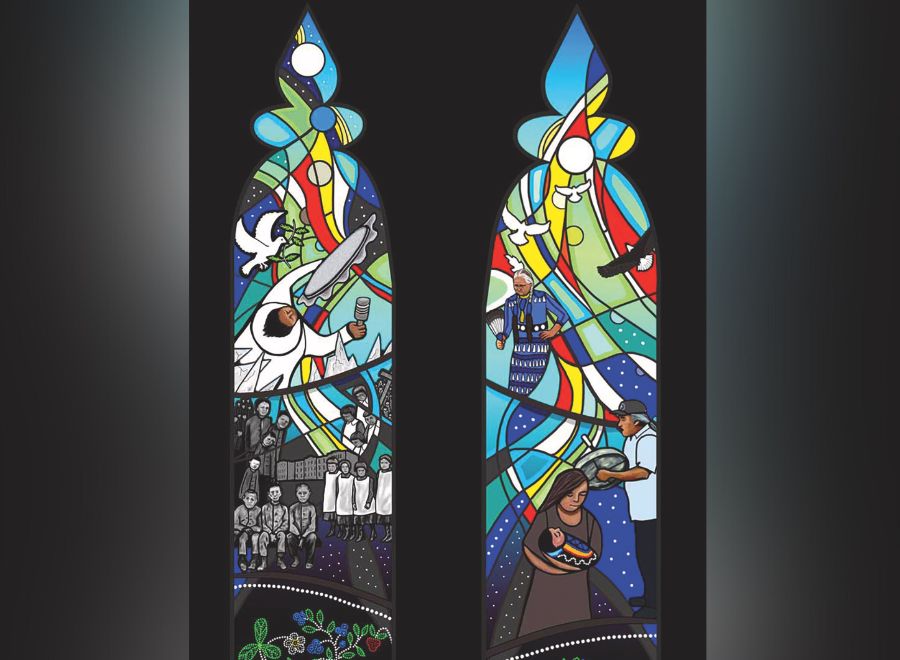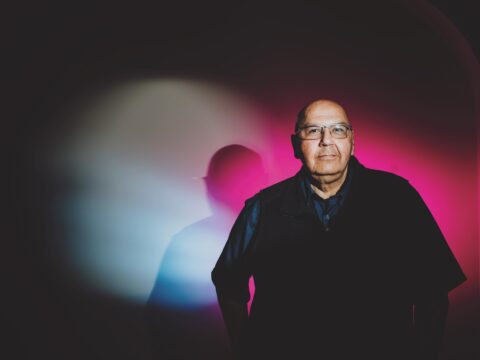“Mission” is more than just a word. It’s a shorthand for an entire system of colonization that wreaked havoc here in Canada and around the world. Words matter. It’s the task of churches and other faith communities to retire “mission” – not just the word but also the concept.
The language of mission is pervasive in the life of the United Church, despite coming under critique. Mission & Service is the name of the national fund that supports the wider work of the denomination, and the Minutes for Mission that are read in worship in many United churches have only recently been renamed “Your Generosity Matters.”
You may unsubscribe from any of our newsletters at any time.
But on the margins of the church, the word is problematic. Indigenous people have long been concerned about the colonial baggage attached to the concept and practice of mission, as have other racialized peoples. The United Church’s predecessors – the Methodist and Presbyterian churches that became part of the denomination through church union in 1925 – were quite active in “missions to the Indians.” In several Indigenous communities, churches were established, often with the assistance of Indigenous evangelists.
When church union happened, many Indigenous churches were close to 100 years old. They had a deep history in their communities. But the founding denominations didn’t regard these Indigenous faith communities as full churches. Despite having the same structures as settler churches, Indigenous churches were considered mere “missions.”
When union happened, those churches, unlike settler congregations, weren’t consulted. Instead, they were moved en masse into the new United Church. By this time, residential schools were prolific, and restrictions on Indigenous people made them second-class citizens in both Canada and the United Church. There are good reasons why the Indigenous Church is leery of its co-regionalists. Dispensing with the vocabulary of mission must be a crucial part of what it means to be in right relationship with the Indigenous Church.
“Mission” isn’t a scriptural word. It was first used by the Jesuit order in the 1590s. “Mission” only appears three times in the New Revised Standard Version, first published in 1989. The word is used once to describe Paul and Silas’s evangelism (Acts 12:25). One passage in the Old Testament uses the term to refer to a military mission (1 Samuel 15:18-20), and another passage uses it to describe sending spies to go check out a land (Judges 18:5-6). It’s also used in the headings of sections such as “The Mission of the Seventy” — but those references are added by the editors, not translated from the original language. And it never appears in the King James Version of 1611.
More on Broadview:
- Why more Indigenous people are leaving Christianity
- ‘We Meant Well’ explores saviourism and complicity in international aid
- How the United Church got into the business of residential schools
The act of sharing the story of Christianity is fundamental to the faith. We share the good news as a love letter from God. But we have wrapped that faithful story in a colonial envelope — the colonialism that destroyed entire peoples and cultures. Our task as the contemporary church is to keep God’s love letter to the world while tossing the envelope in which we’ve traditionally trapped it. This means new language and new ways of being church together. It means listening deeply to Indigenous and racialized people.
As the Theology and Inter-church Inter-faith Committee, with others, reflects on the use of the word “mission” this year, it needs to listen to people on the margins of the church.
What’s at stake is our experience of Christ. There is something deep and true at the core of our faith, but the language of mission harms us all. Letting go of it will be a move toward healing for the whole church.
***
Rev. Teresa Burnett-Cole is a biracial minister serving Glebe-St. James United in Ottawa.
Rev. Thérèse Samuel is a settler of colour serving as minister for right relations and social justice in three United Church regions of southwestern Ontario.
This story first appeared in Broadview’s June 2023 issue with the title “The Problem with the Word ‘Mission.’”













Maybe the word we need is , “sharing”.
When one has something good – good news – one “shares” it
“Sharing” is a much better word than “mission.” It denotes a two-way process rather than an aggressive one-way message.
The problem though is that Christianity has historically been an exclusivist religion. My way and only my way is the true path to salvation. It’s hard to have dialogue with such a stance.